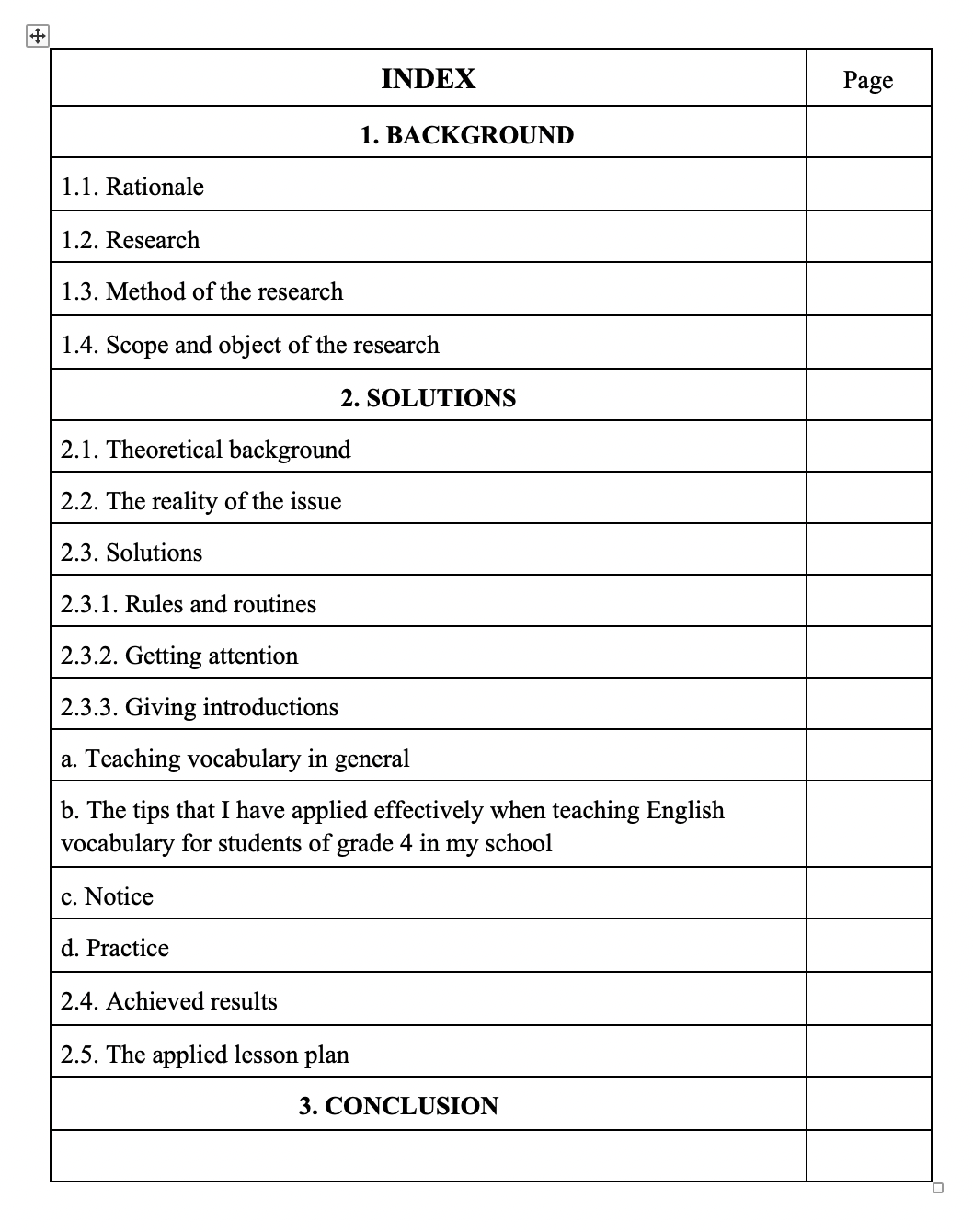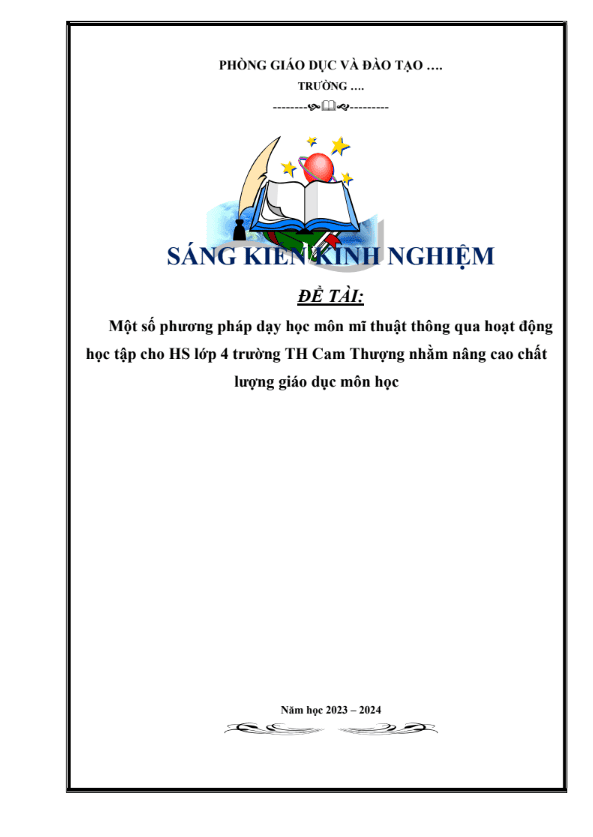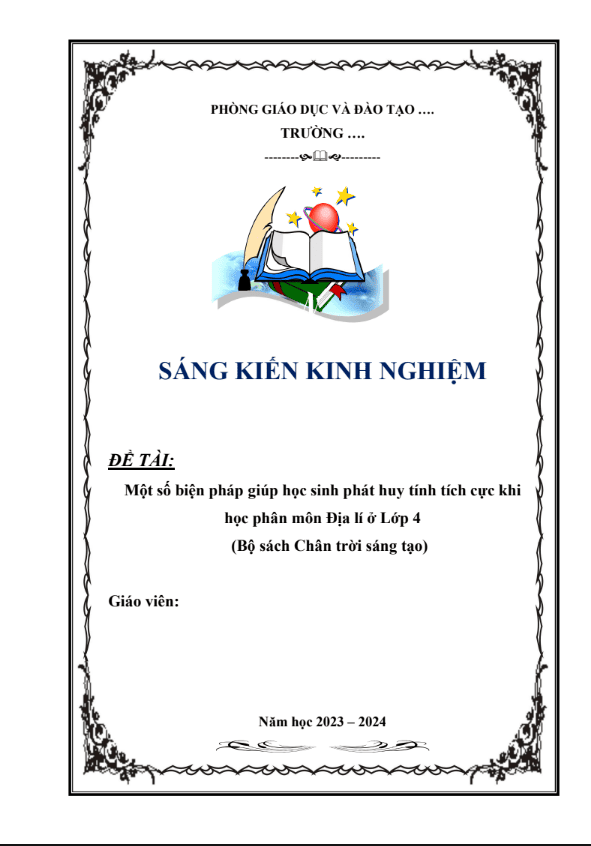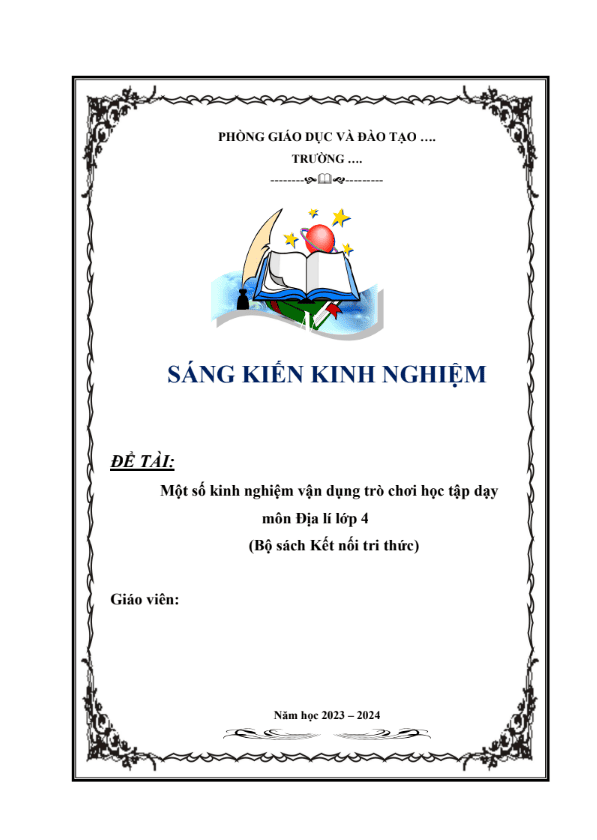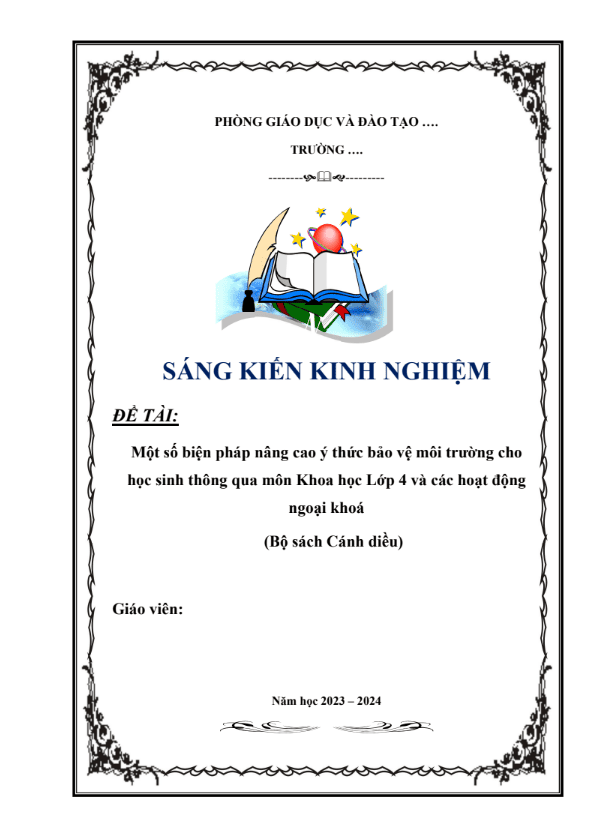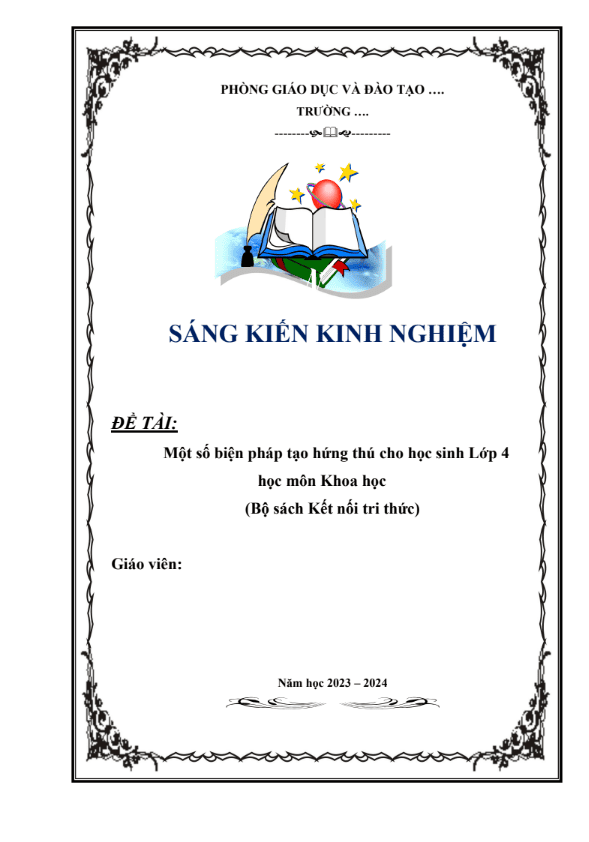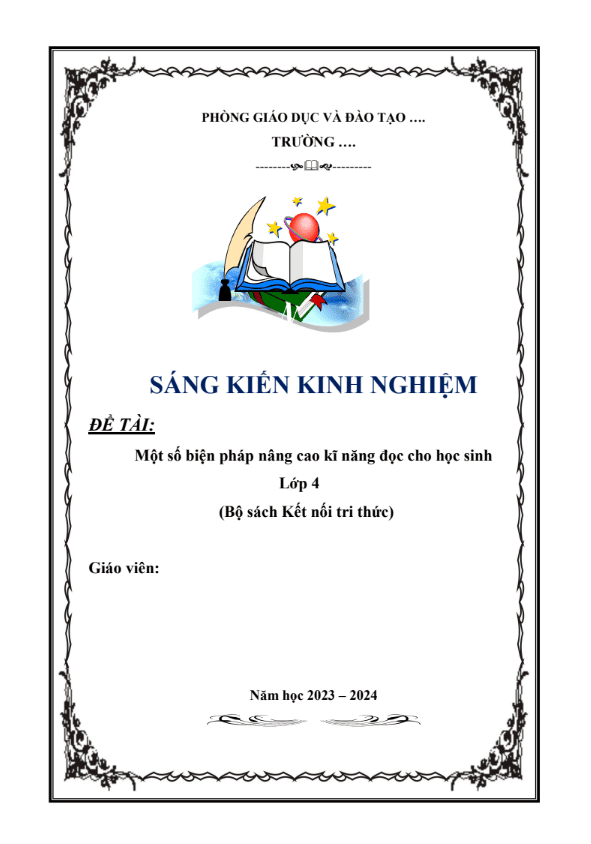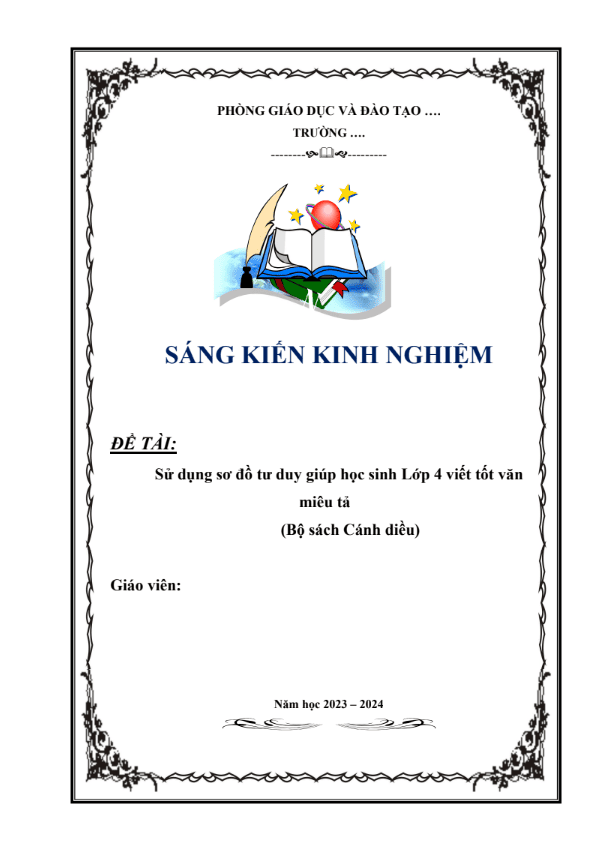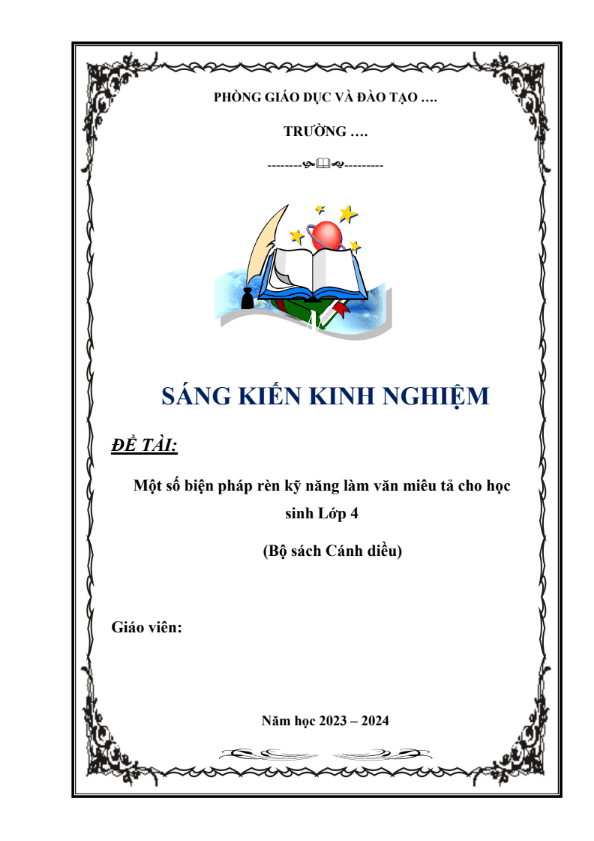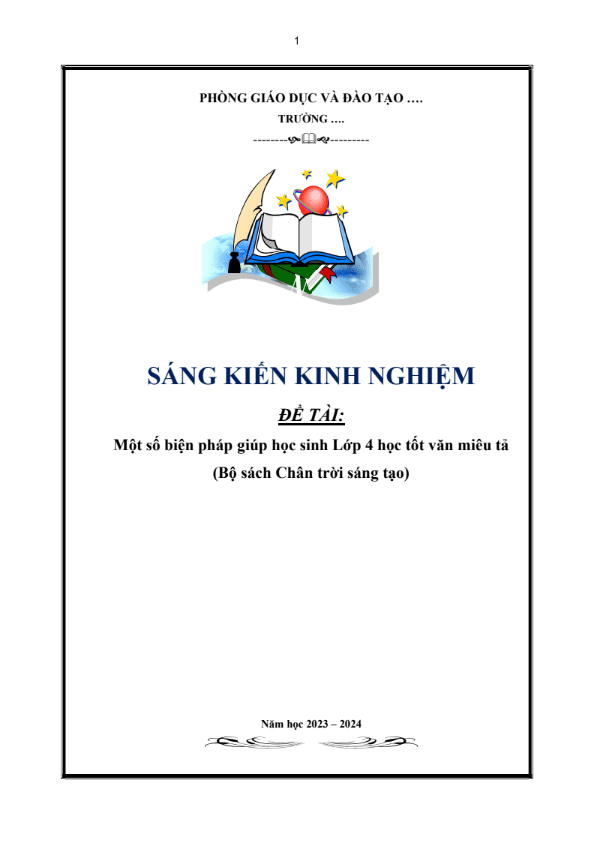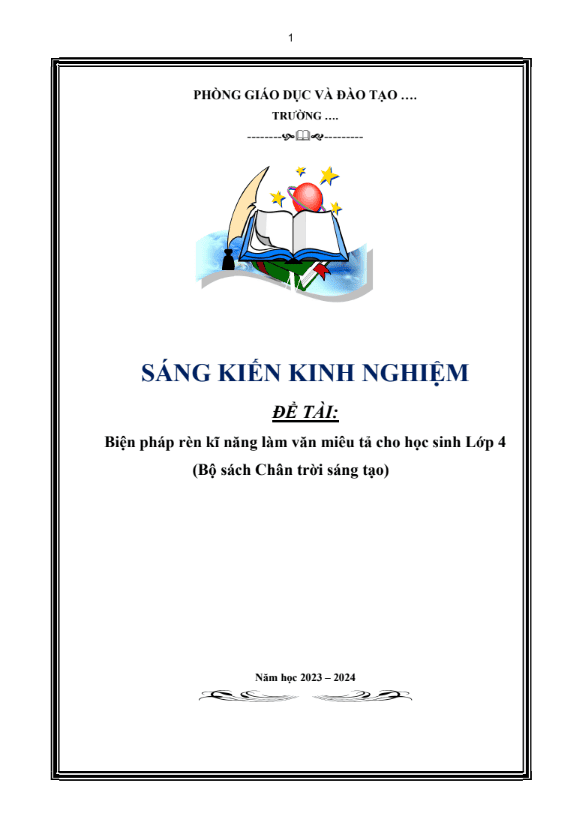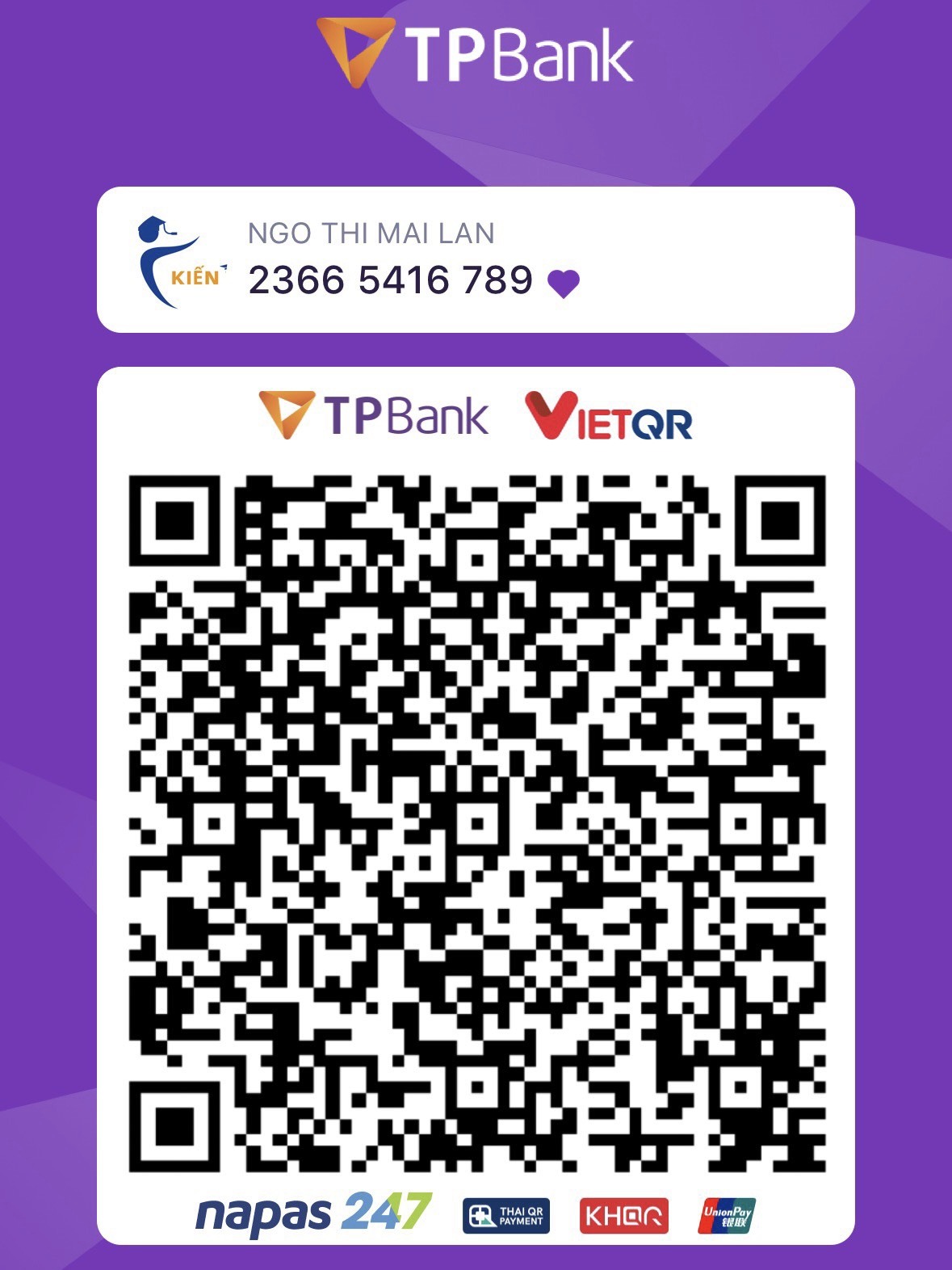SKKN Some experience in teaching english vocabulary for primary students of grade 4
- Mã tài liệu: BM4088 Copy
| Môn: | Tiếng anh |
| Lớp: | 4 |
| Bộ sách: | |
| Lượt xem: | 681 |
| Lượt tải: | 4 |
| Số trang: | 27 |
| Tác giả: | Lê Thị Thu Ngọc |
| Trình độ chuyên môn: | Thạc sĩ giáo dục |
| Đơn vị công tác: | Trường Tiểu học Nguyễn Văn Trỗi |
| Năm viết: | 2023-2024 |
| Số trang: | 27 |
| Tác giả: | Lê Thị Thu Ngọc |
| Trình độ chuyên môn: | Thạc sĩ giáo dục |
| Đơn vị công tác: | Trường Tiểu học Nguyễn Văn Trỗi |
| Năm viết: | 2023-2024 |
Sáng kiến kinh nghiệm “SKKN Some experience in teaching english vocabulary for primary students of grade 4” triển khai gồm các biện pháp nổi bật sau:
2.3.1. Rules and routines
2.3.2. Getting attention
2.3.3. Giving introductions
a. Teaching vocabulary in general
b. The tips that I have applied effectively when teaching English vocabulary for students of grade 4 in my school
c. Notice
d. Practice
Mô tả sản phẩm
- BACKGROUND
1.1 Rationale
During the school year of ………., the Ministry of Education and Training (MoET) implemented the model teaching of English subject to the students at primary schools, in accordance with the project of foreign languages teaching in the national education system, of the period 2015 – 2020. According to the subject, the primary English program is to be applied since grade 4, with the familiar topics to the students. All four language skills of listening, reading, speaking and writing are focused; in which, listening and speaking are settled as priority. The objectives of the project are to help the students achieving Movers level, in accordance with Cambridge ESOL; using a vocabulary of roughly 300 to 500 words. In details, the students will be able to understand and use the simple words and sentences, the daily expressions; they will also be able to introduce themselves, satisfy their communication need. In such a circumstance, the innovation and application of advanced teaching methods become a vital requirement.
Vocabulary plays an important role in learning a foreign language. It is one element that links the four skills of speaking, listening, reading and writing all together. In order to communicate well in a foreign language, students should acquire an adequate number of words and should know how to use them accurately.
Even though students realize the importance of vocabulary when learning a language, most Vietnamese students learn vocabulary passively due to several reasons. First, they find the teacher’s explanation for the new words’ meaning, pronunciation, spelling or grammatical functions boring. In processing learning English in the class, language learners have nothing to do in a vocabulary learning section but to listen to their teacher. Second, students only think of vocabulary learning as learning the primary meaning of new words. Therefore, they ignore all other functions of the words. Third, students usually only learn new words in their textbooks or those given by teachers during classroom lessons. For example, learners find many new words in a text and then ask the teacher to explain their meanings and usages. Forth, many Vietnamese learners do not want to take risks in applying what they have learnt. Students may recognize a word in a written or spoken form and think that they already “know the word”, but they may not be able to use that word properly in different contexts or pronounce it correctly. As the result, the class is often quiet and inactive and the lessons appear to be uninteresting. Students just seat in silence, do the exercises, and wait for the correct answers from the teachers. They seem to get bored of having the same ways of learning every day. Therefore, classroom vocabulary learning activities help learners develop and use words in different contexts and make the lessons enjoyable.
Having been teaching English to the primary students for 10 years, especially students in grade 4, I realized that in order to approach the objectives mentioned above, the teachers must work hard, research and find out the most effective teaching methods. There are a variety of issues in the procedure of teaching English to the primary students that need the serious concerns; however, what made me really puzzled was how to help them understand the vocabulary easily, get the words’ meaning and use them in communicating as well as in doing exercises. In order to do this work I have learnt a lot from the materials, from friends and colleagues, and now, I would like to present my
“ Some experiences in teaching English vocabulary for primary students of grade 4”
1.2 Research
The study was designed to achieve the following goals:
- To find out the English teachers and students’ perception and attitude towards vocabulary and the current situation of vocabulary learning and teaching
- To evaluate the effectiveness of the currently used classroom vocabulary learning activities in my school.
- To suggest how to use classroom vocabulary activities to improve vocabulary teaching and learning.
1.3. Method of the research
In order to achieve the above-stated goals, the study was to seek answers to the following questions:
- What are the English teachers and students’ perception and attitude towards vocabulary learning/teaching?
- How effective are the currently used classroom vocabulary learning activities in my school?
1.4. Scope and object of the research
Students need lots of vocabulary to increase their ability and confidence in communicating in English. However, learning vocabulary is never easy for learners. Teachers, who motivate the students learning English, need to make learning vocabulary a fun involving and active process. In order to learn and retain new words, learners should participate in different task-based activities in their classroom whether it is a guessing task, a describing exercise or conversation making. Such activities especially focus on helping learners develop and use words in different contexts by making the lesson enjoyable.
Language learning is a hard task which can sometimes be frustrating. Constant effort is required to understand, produce and manipulate the target language. Well-chosen learning activities are invaluable as they give students a break and at the same time allow students to practise language skills. Learning activities are highly motivating since they are amusing and at the same time challenging. Furthermore, they employ meaningful and useful language in real contexts. They also encourage and increase cooperation.
We consider vocabulary learning activities a way to help students not only enjoy and entertain with the language they learn, but also practice it incidentally. So, vocabulary-learning activities are useful and effective tools that should be applied in vocabulary classes. They make the lessons more interesting, enjoyable and effective.
There are, of course, many ways to motivate the students to learn English effectively. However, in this minor thesis, I would focus my research on the effectiveness of classroom vocabulary learning activities in my school in Vinh city. The reason is that my students are too passive to learn vocabulary. They need to participate more actively in learning activities. I hope that through some classroom vocabulary activities, I will find the most effective learning activities to improve students’ vocabulary learning. My students have chance to use the words productively.
The scope and object of this research are aiming to the students of the grades 4 in my school.
TÀI LIỆU LIÊN QUAN
- 0
- 155
- 1
- [product_views]
- 6
- 163
- 2
- [product_views]
- 8
- 188
- 3
- [product_views]
- 3
- 125
- 4
- [product_views]
- 5
- 118
- 5
- [product_views]
- 8
- 110
- 6
- [product_views]
- 7
- 116
- 7
- [product_views]
- 0
- 188
- 8
- [product_views]
- 5
- 192
- 9
- [product_views]
- 1
- 187
- 10
- [product_views]

